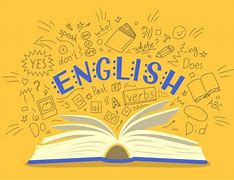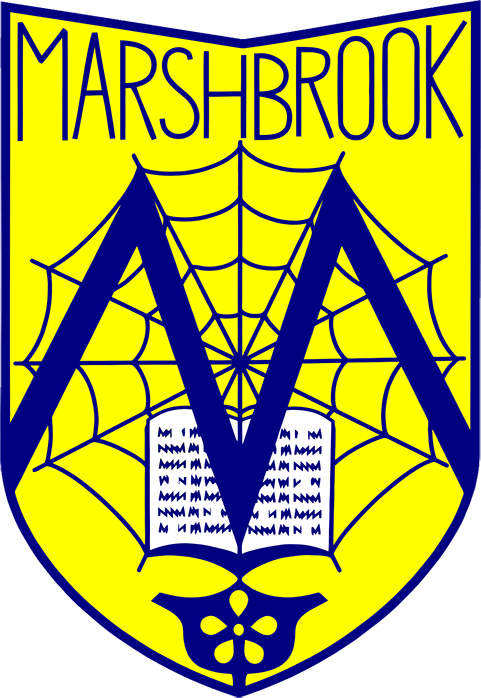English

Vision: Children read with fluency, accuracy and understanding. They have a love of reading and develop the vocabulary they need to access the wider curriculum and become confident and competent speakers and writers. They write independently to express themselves and communicate. They can reflect upon their own and others’ writing to understand how structure and word choice can affect the tone and impact of the writing.
Intent: At Marshbrook, we are following the statutory guidance for the teaching of English, as set out in the National Curriculum 2014.
Phonics is taught daily using Monster Phonics. As pupils move through the early stages of acquiring phonics, they practise by reading texts, which are book banded and phonically decodable, from Monster Phonics and Bug Club.
Nursery pupils start to cover phase 1 phonics throughout their year in Nursery and move onto phase 2 when they are ready. Children are expected to have achieved phase 4 by the end of Reception. The majority of children reach the final phase (6) in Year 2. If a child is struggling to reach age-related expectations, they will be given additional phonics support.
Reading is not simply the decoding of marks on the page; it involves the ability to read with understanding, a wide range of different texts, including fiction, non-fiction, real world texts such as labels, captions, lists and environmental print. Competence in reading is the key to independent learning and therefore the teaching of reading is given a high priority by all staff.
In Nursery and Reception, children work within the EYFS framework. Nursery, pupils are given an opportunity to familiarise themselves with books. Pupils learn how to hold a book the right way, how to turn pages, how to explore pictures, and are exposed to hearing stories – all vitally important skills to begin their reading journey. In Reception, reading is taught through adult led guided sessions as well as a range of other literacy focused whole class and child choice activities.
Across the rest of the school, children benefit from weekly planned guided reading sessions, using colour banded books that are linked to phonic phases in the earlier years and topics in class where possible. Children are taught to use a full range of reading cues: phonics, graphic, syntactic and contextual, to help them to become fluent readers. They use our reading scheme which consists predominantly of Collins Big Cat and Oxford Reading Tree – Fireflies, Project X, Main Scheme, Songbird, Phonics, along with some Rigby Rocket and Rigby Star and a selection of ‘real books’. There are fiction and non-fiction books within each level and a variety of genres and styles. They are also given the opportunity and encouragement to read independently in order to build confidence, stamina and fluency, as well as develop their experience of a range of books and authors.
Writing is encouraged from an early age. In Nursery and Reception children progress through the Development Matters document which outlines the ages and stages of progression for the EYFS curriculum. Mark making activities are planned to develop children’s fine motor skills across different areas of the curriculum and children participate in adult led writing sessions.
There is a focus on developing and enhancing pupils’ language skills, as we recognise that “If a child can’t say it, a child can’t write it”. Children write for a variety of audiences and purposes. The long-term plan identifies which genres will be studied in-depth in each year group. The study of that genre will include exploration and analysis of texts; identifying features of the style of writing and SPAG work to support; modelled, scaffolded, guided, edited, redrafted and final pieces. Children are also given additional opportunities to write at length in other areas of the curriculum, revisiting genres taught in depth in previous year groups.
Punctuation and grammar is taught across all year groups and revisit and review sessions are planned to enable practice and encourage retention. Children are taught to identify different areas of punctuation and grammar and be able to apply these in their writing. Opportunities for drama and discussion enhance language development and understanding of story features.
We recognise the importance of high expectations, teachers use non-negotiables (Marshbrook Musts) and WAGOLLs (What A Good One Looks Like) to reinforce these. Children are given clear success criteria and opportunities to evaluate and reflect on their own work in order that they may become assessment capable and develop their own sense of achievement.
Spelling patterns and rules are taught as laid out in the National Curriculum for each year group. Children engage in a range of activities during the week to reinforce these spelling patterns and rules. Common exception words are also taught. These high frequency exception words are also given to the children to practise at home.
Handwriting is taught from Nursery, using the Letter Join Scheme. Handwriting is taught formally and regularly in all year groups, with additional time for practice. Younger children, who are not yet ready to write, are provided with lots of activities to develop their fine motor skills, such as threading, tracing, write dance, dough gym etc.
Individual pupil skills grids set out clear expectations for the end of each year group, which are visible to the pupils and support the teachers in identifying areas for development and next steps.
